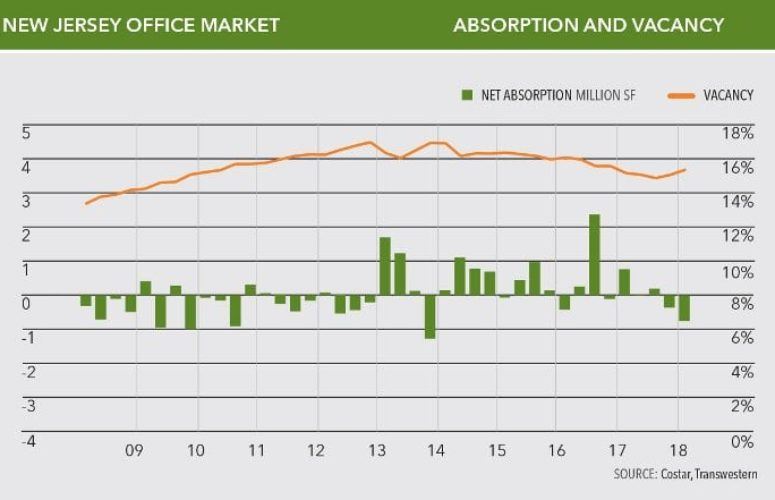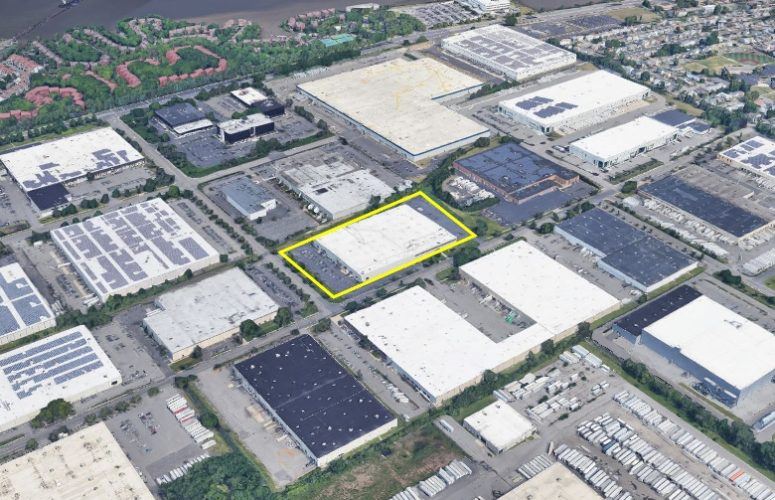
Office Market’s Slow Start Combatted by Rising Asking Rates and Repurposing Obsolete Space
On Apr 20, 2018The New Jersey office market experienced historically low net absorption during the first quarter of 2018, according to Transwestern’s First-Quarter 2018 Office Market Report. Abnormally high losses in two submarkets accounted for decreasing occupancy levels.
While substantial decreases in occupancy plagued the Hudson Waterfront and Somerset/I-78 East submarkets, the balance of the market witnessed nearly a quarter-million square feet of positive absorption. These two areas weighed heavily on the market, and, as a result, the office sector overall registered its slowest first quarter in more than two decades. Despite this, New Jersey’s office market has been known to rebound strongly after slow starts.
“The first quarter did not exhibit vibrant growth in the office market, but it’s worth remembering that vacancy levels are still substantially lower than their post-recession highs,” said James Postell, partner and city leader in Transwestern’s New Jersey office. “Despite significant tenant move-outs in a few areas, there are several large office deals in the pipeline.”
Positive news for the first quarter include average asking rents, which trended upward in 17 of 21 submarkets. The Bergen East, Edison South and Union/Parkway submarkets saw particular strength in respect to rental rates. Market-wide, rents rose to $26.44 per square foot from $26.34 during the previous quarter — and from $26.38 on a year-over-year basis. Transwestern’s report attributed this uptick to the fact that the bulk of newly available space has largely consisted of Class A buildings.
“While the New Jersey office sector has borne the brunt of substantial negative net absorption over the past six months, it did see a majority of submarkets record positive net absorption this past quarter,” said Transwestern’s New Jersey Research Director Matthew Dolly. “In addition, private-sector employment is on the rise, including recent growth in the technology industry, boding well for the office market.”
The market is well-positioned to bounce back and attract new businesses through repurposed aging office space that meets the requirements of today’s occupiers. Owners zeroed in on creating spaces designed for the growing healthcare, life science and industrial arenas, all of which are sectors targeted for growth by both local and state governments in New Jersey. The office sector’s most-active industries during the first quarter were financial services, health services, technology/telecommunications and insurance.
To access more business news, visit njbmagazine.com
Related Articles:





